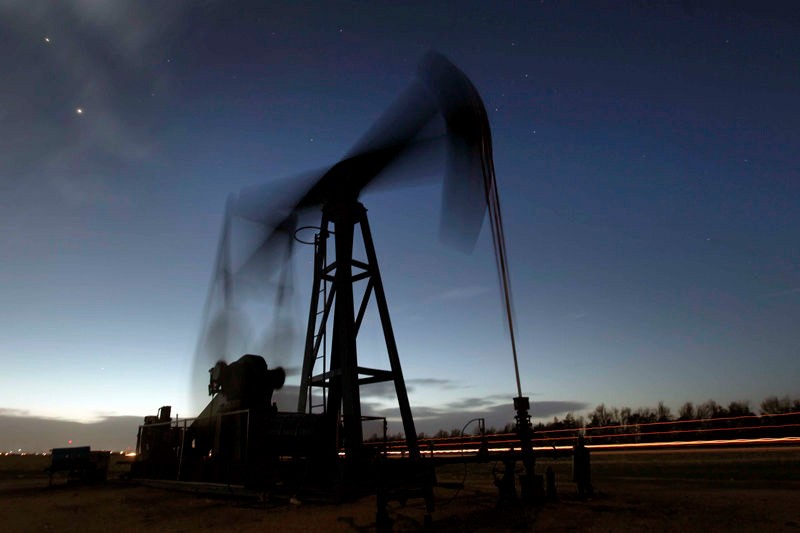
A pumping unit sucks oil from the ground near Greensburg, Kan. on March 6, 2012.
8:51 JST, March 2, 2022
FRANKFURT, Germany (AP) — All 31 member countries of the International Energy Agency have agreed to release 60 million barrels of oil from their strategic reserves — half of that from the United States — “to send a strong message to oil markets” that there will be “no shortfall in supplies” after Russia invaded Ukraine, the group said Tuesday.
The board of the Paris-based IEA made the decision at an extraordinary meeting of energy ministers chaired by U.S. Energy Secretary Jennifer Granholm. She said in a statement that President Joe Biden approved a commitment of 30 million barrels and that the U.S. is ready to “take additional measures” if needed.
The group’s “decision reflects our common commitment to address significant market and supply disruptions related to President Putin’s war on Ukraine,” Granholm said.
Russia plays an outsized role in global energy markets as the third-largest oil producer. Its exports of 5 million barrels of crude per day amount to about 12% of the global oil trade. Some 60% goes to Europe and another 20% to China.
So far, U.S. and European sanctions have not barred oil or gas exports and have included exceptions for transactions to pay for oil and gas. Western leaders are reluctant to restrict Russian oil exports at a time when global energy markets are tight and high prices are fueling inflation in developed economies.
But the invasion has still shaken markets worldwide. On Tuesday, oil prices soared, with U.S. benchmark crude surpassing $100 per barrel — the highest price since 2014.
“The situation in energy markets is very serious and demands our full attention,” IEA executive director Fatih Birol said. “Global energy security is under threat, putting the world economy at risk during a fragile stage of the recovery.”
Besides the United States, other members of the organization include Germany, France, the United Kingdom, Japan and Canada. IEA members hold emergency stockpiles of 1.5 billion barrels of oil. The release amounts to 4% of stockpiles, or roughly 2 million barrels per day for 30 days.
It’s only the fourth time in history that the IEA has done a coordinated drawdown since the reserves were established in the wake of the Arab oil embargo in 1974.
From the U.S. perspective, the price of crude oil determines a big portion of what drivers pay to fill up their cars with gasoline. The national average for a gallon of gas is $3.61, which is 26 cents more than a month ago and 90 cents more than a year ago, according to motor club federation AAA.
In November, Biden announced a release of 50 million barrels of oil in coordination with other energy-importing countries, but the measure had only a fleeting impact on oil prices, which have continued to rise.
Granholm stressed the need to invest in renewable energy as a way to reduce dependence on Russian oil and natural gas.
Top Articles in News Services
-

Survey Shows False Election Info Perceived as True
-

Prudential Life Expected to Face Inspection over Fraud
-

Hong Kong Ex-Publisher Jimmy Lai’s Sentence Raises International Outcry as China Defends It
-

Japan’s Nikkei Stock Average Touches 58,000 as Yen, Jgbs Rally on Election Fallout (UPDATE 1)
-

Trump Names Former Federal Reserve Governor Warsh as the Next Fed Chair, Replacing Powell
JN ACCESS RANKING
-

Japan PM Takaichi’s Cabinet Resigns en Masse
-

Japan Institute to Use Domestic Commercial Optical Lattice Clock to Set Japan Standard Time
-

Israeli Ambassador to Japan Speaks about Japan’s Role in the Reconstruction of Gaza
-

Man Infected with Measles Reportedly Dined at Restaurant in Tokyo Station
-

Videos Plagiarized, Reposted with False Subtitles Claiming ‘Ryukyu Belongs to China’; Anti-China False Information Also Posted in Japan
























